
How to Combat Loneliness for Aging Parents
Loneliness is more than just a negative feeling; it can take a heavy toll on a person’s health and well-being. Although anyone can become lonely, as we age, there are changes to our health that can put older people at particular risk. For example, a senior may live alone or be unable to participate in activities they previously enjoyed. Or they might live in an assisted living facility and feel isolated and unsure of how to engage with others around them. A report from the National Academies of Sciences, Engineering and Medicine (NASEM) noted that more than one-third of adults aged 45 and older feel lonely, and nearly one-fourth of adults aged 65 and older are considered to be socially isolated. There’s also a growing body of research that reveals how social isolation can harm the mental and physical health of seniors.
Senior isolation and age-related health issues – such as being hearing impaired – can lead to further complications of existing conditions while also affecting cognition. In the same NASEM report, social isolation was associated with a “50% increased risk of dementia and other serious medical conditions”. A new National Institute for Health and Care Research (NIHR) study found that up to “one in five cases of depression in older adults could be prevented by reducing loneliness.” Some of the other adverse side effects of loneliness and social isolation include:
- High blood pressure
- Heart disease
- Obesity
- Depression
- Cognitive decline
- Anxiety
- Dementia (including Alzheimer’s disease)
So how can you help your aging parents combat loneliness and social isolation?
5 Ways to Help Aging Parents Combat Loneliness
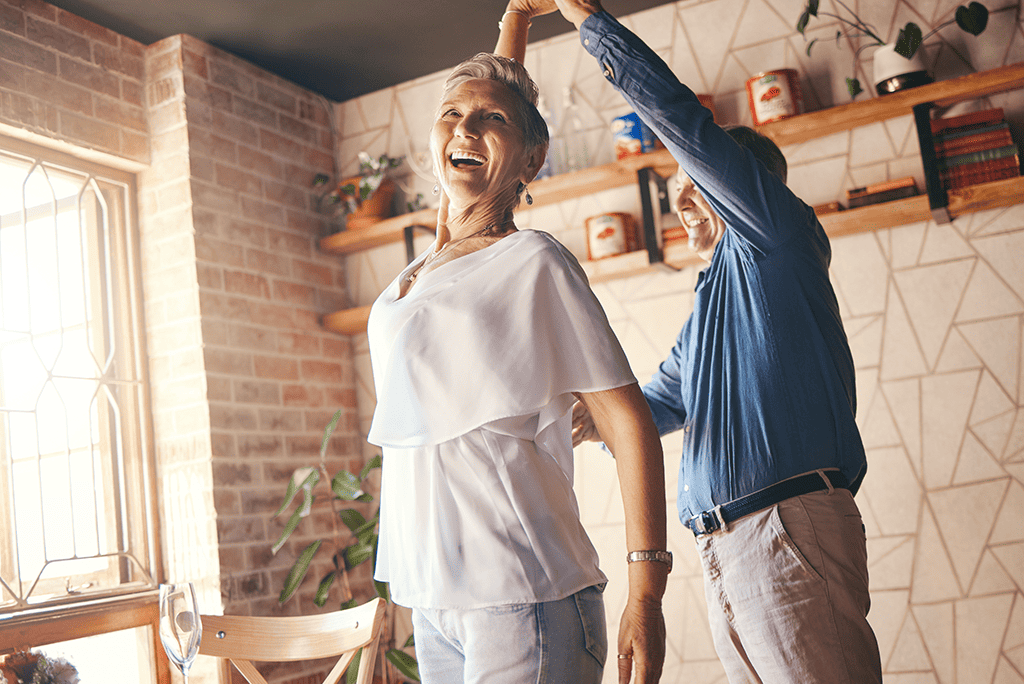
While there is no one-size-fits-all approach when it comes to addressing loneliness or social isolation with your aging parents, there are several solutions that when used together, can be incredibly impactful. An NIHR research paper found that seniors who have “two or three close relationships decreased the risk of dementia by 60%.” There’s a lot of research that shows that connection and a community support system can help prevent social isolation and lead to improved physical, emotional and mental well-being. Want more specifics? Here are some other ways to help combat senior isolation.
1) Help Them Get Involved in Their Community
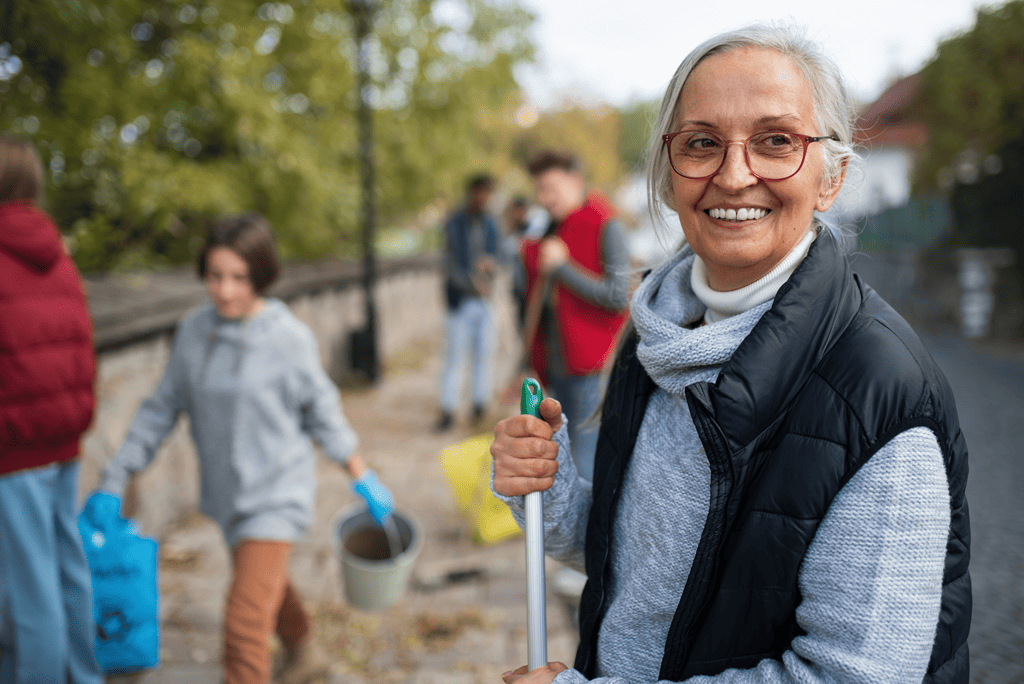
No matter where they live there are a lot of incredible resources available to seniors who are interested in becoming more involved in their community. One way is through volunteer opportunities such as teaching children to read, communal gardening, or becoming a volunteer at a local museum. Encourage your aging parents to check out local social service agencies, community and senior centers. Public libraries are also great places to encourage aging parents to reach out to when looking for community involvement resources. Other resources include local service and philanthropic clubs. For tech-savvy seniors, social media and sites like Virtual Senior Center are great places to meet new friends and learn new technology from the comfort of their own home.
2) Encourage Social Connections
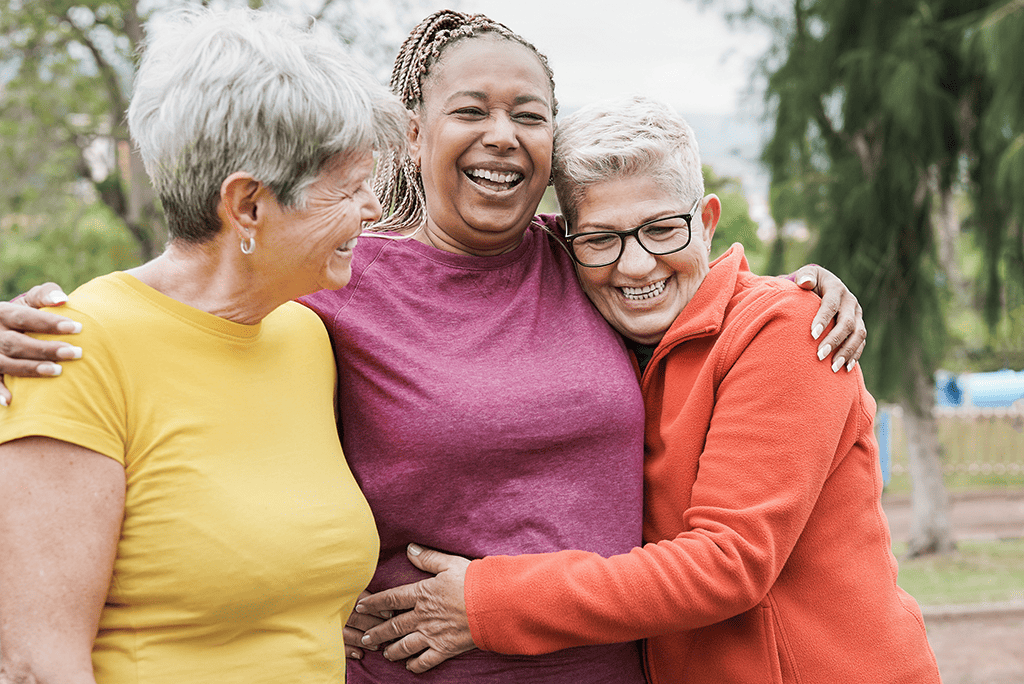
Creating and maintaining connections with family and friends can have a very positive impact on your aging parents’ mental health. Maintaining relationships and socialization can decrease their risk of depression and loneliness as well as help reduce stress, promote cardiovascular health and improve self-esteem. One of the ways Vimient Connect can help is through the twice-weekly calls your aging parents will have with our Certified Health and Wellness Coaches. In addressing any feelings of loneliness, our Coaches also provide encouragement and guidance on proper diet, nutrition, sleep and exercise, and help facilitate social connections to local events and services.
3) Get Them Excited About Joining a Group Exercise Class
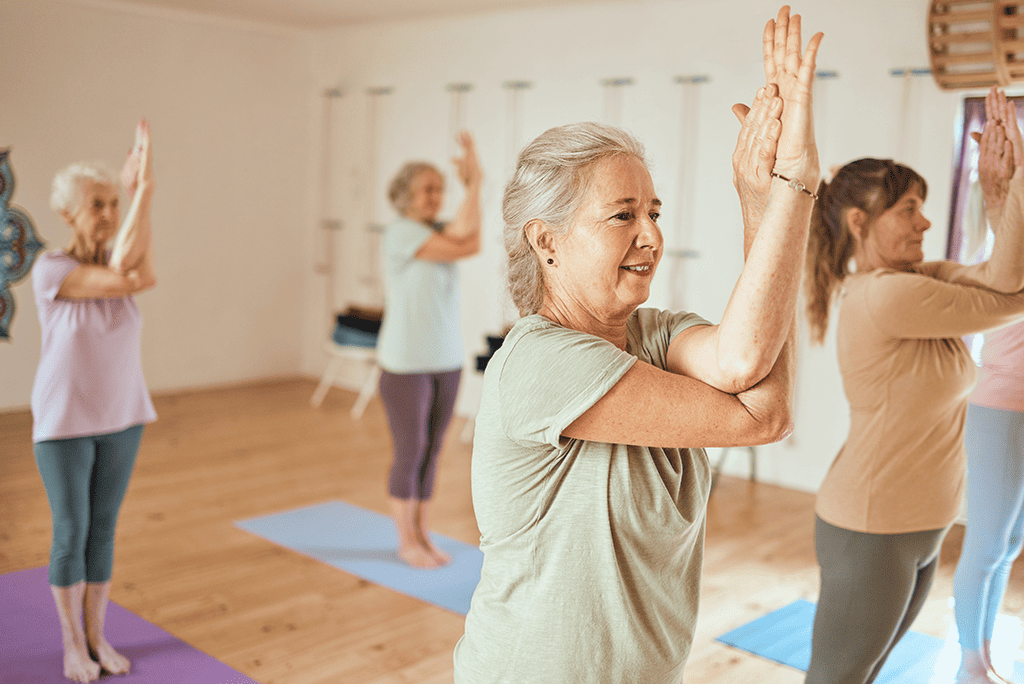
Exercise is a great way to create connections and improve physical health. Getting your aging parents to join a group exercise class is a great way for them to stay physically fit while also preventing social isolation. By exercising and moving their body at least 150 minutes each week (which is 30 minutes per day, 5 days a week), your aging parents can benefit from the release of endorphins, reduction of stress and improved body image. If they’re looking for a great way to stay fit try finding (or creating!) a local exercise community.
4) Adopt a Pet

Studies show that just 15 minutes with an animal can reduce stress levels, increase serotonin levels, and decrease feelings of isolation and depression. If your aging parents are able to care for a pet, consider encouraging them to visit their local animal shelter and adopt a new companion! Human and pet interactions can help lower cholesterol levels and even protect against heart disease and stroke. If they’re unable to adopt, suggest they try volunteering at their local shelter. This is also a great way for them to meet other like-minded volunteers!
5) Help Them Find a New – or Expand on an Existing – Hobby
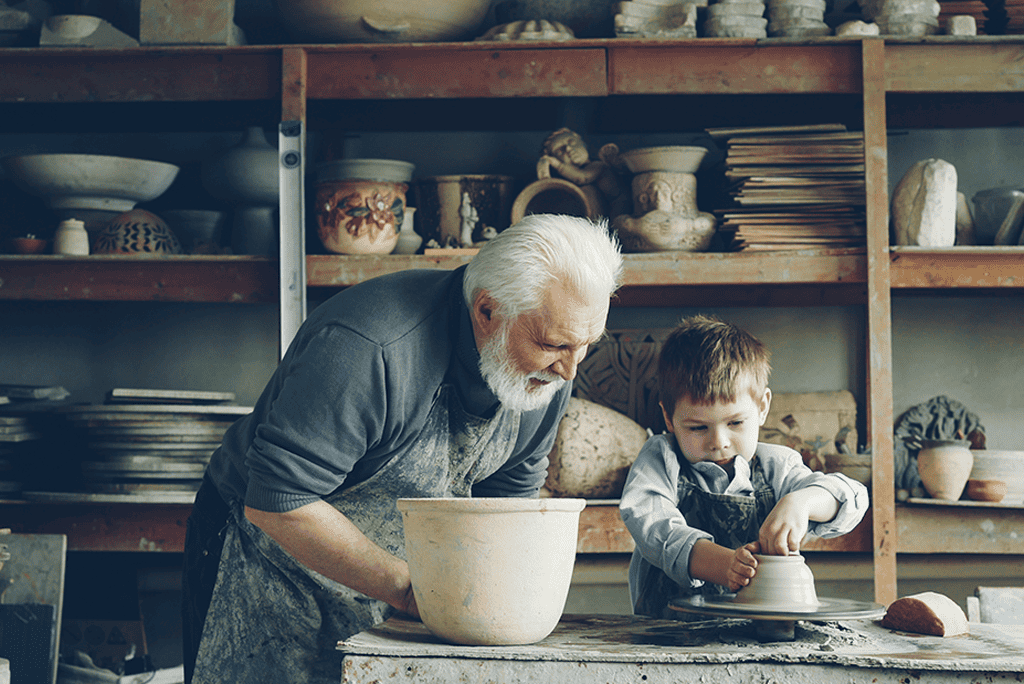
Whether or not they have a hobby that they love doing, many local senior and community centers as well as local libraries offer a variety of in-person courses and programs. Do they love to sing, paint or knit? What about sculpting, woodworking or pottery? If they’re tech-savvy, consider encouraging them to use social media to find a group or class near them.
Additional Resources
If you have aging parents (or know someone with senior parents) who are experiencing loneliness and isolation, the good news is there are a lot of incredible resources available to help.
- Eldercare Locator: this is a great resource to connect with when searching for public services for your aging parents; including community service programs. You can also call 800-677-1116.
- Expand Your Circles: this document provides a list of resources to support seniors who are struggling with isolation and loneliness.
- Friendship Line: this accredited service offers 24/7 support services, including suicide intervention. Your parents don’t have to be in crisis to call – the Friendship Line is also a warmline with staffers who can offer a listening ear and provide information and referrals for seniors experiencing isolation. Call toll-free: 800-971-0016.
- Dial “211”: In many states, dialing “211” provides the caller in need a direct way to connect with needed health and human service agencies.
Remember, there is no one-size-fits-all approach when it comes to addressing loneliness or senior isolation. The resources and ideas noted here are just a few of the ways that you can help your aging parents connect with services, organizations and communities. Our goal is to enable our senior members and their families to live fuller lives through connection, independence and care! If you feel your parent is isolated and at risk for loneliness, contact us to learn more about Vimient Connect and how our services can help!
You Might Also Like

Unlocking the Secrets to Longevity: Tips for Seniors to Live Better, Longer
